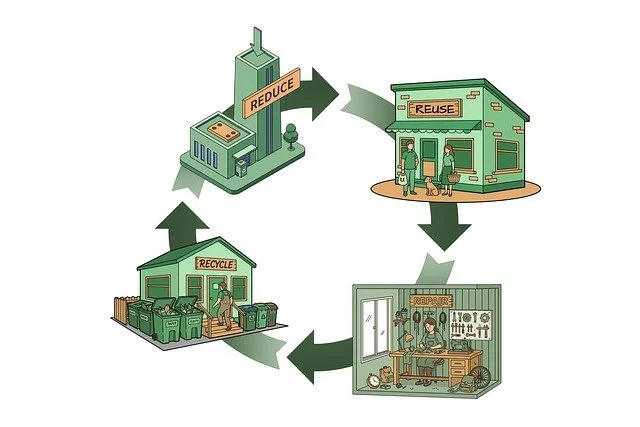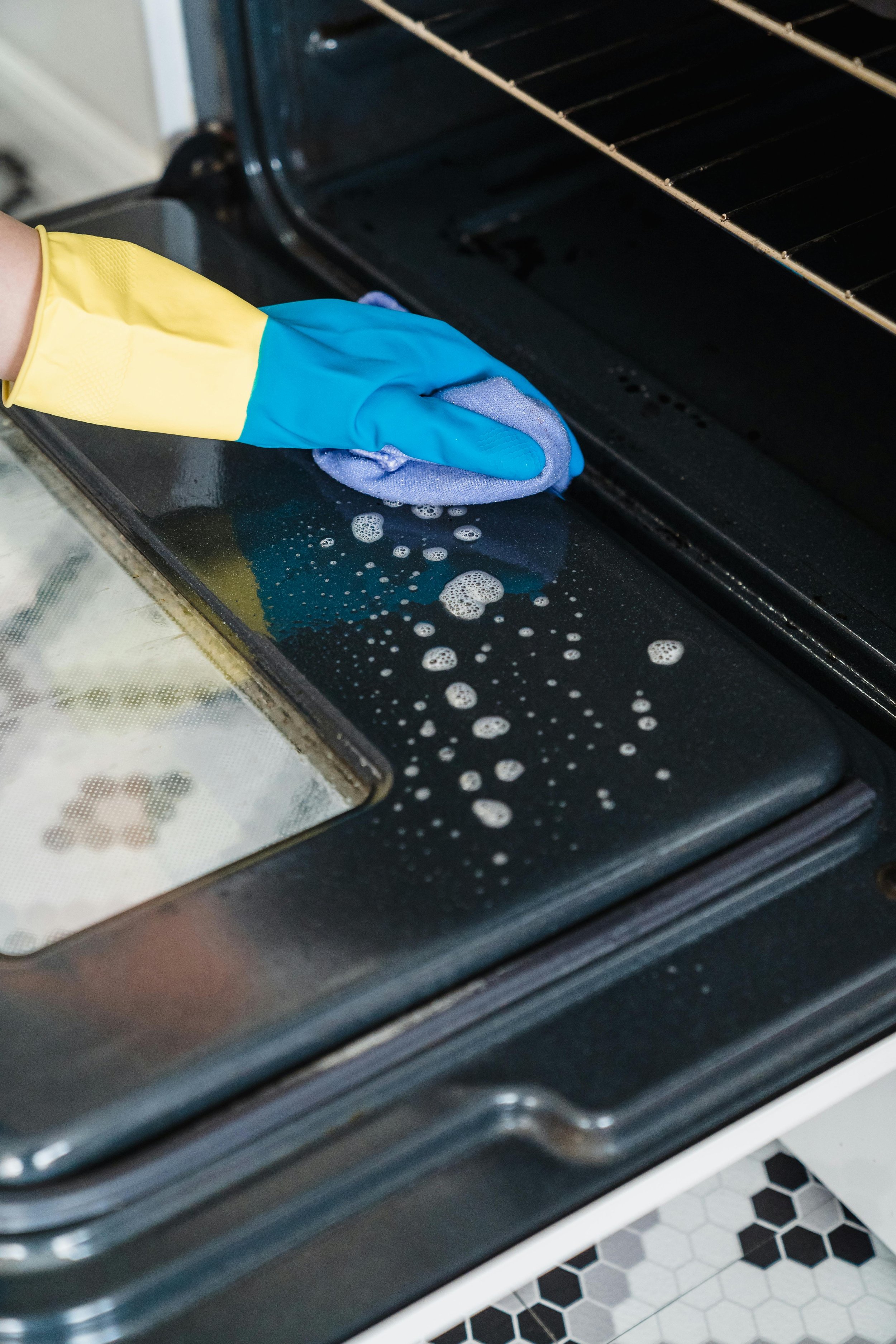Not all energy-efficient appliances are created equal. Here’s how to spot the real deal.
We’ve all heard the buzzwords: eco-friendly, energy efficient, green. But when it comes to the machines running our homes — the dishwashers, fridges, washers, and stoves we use every day — what does sustainable actually mean?
It’s not just about plugging in a shiny new “Energy Star” model and calling it a day. True sustainability is more than a sticker — it’s about what an appliance is made from, how long it lasts, how efficiently it runs, and even how you use it.
Let’s break down what these terms really mean, why the definitions vary, and how to tell the difference between a genuinely sustainable appliance and one that just looks the part.
What “Sustainability” Really Means
Sustainability is one of those words that means something a little different depending on who’s talking. To a manufacturer, it might refer to design — using recycled materials, cleaner production processes, or components that can be repaired and reused. To consumers, it often means an appliance that lasts longer, uses fewer resources, and doesn’t end up in a landfill five years later.
At its core, sustainability is about minimizing harm across an appliance’s entire lifecycle — from how it’s built, to how it operates, to what happens when it’s finally retired.
Appliances like those made by Beko, for example, are partially constructed from recycled plastic, while brands such as Asko have factories certified under ISO 14001 environmental management standards. These efforts don’t just look good on paper; they’re part of a broader push to make each step in manufacturing less wasteful and more circular.
But the truth is, “sustainability” isn’t one-size-fits-all. A refrigerator that’s sustainable for a large family might not make sense for a single person. The most sustainable appliance is the one that meets your needs, runs efficiently, and lasts — because replacing things too often is one of the least sustainable habits of all.
Energy Efficiency: Who Defines It and Why It Matters
Energy efficiency is the measurable side of sustainability — and unlike “eco-friendly,” it does have an official definition. In the U.S., the Environmental Protection Agency (EPA) and the Department of Energy (DOE) set the standards that determine whether a product earns that familiar Energy Star label.
To qualify, an appliance must perform as well as (or better than) standard models while using less energy or water. For example, Energy Star dishwashers use about 12% less energy and 30% less water, and certified refrigerators use around 9% less energy than conventional units.
In Europe, similar regulations fall under the ERP Directive (Energy-Related Products), which requires manufacturers to design appliances for efficiency and reduced emissions. The European Union also uses standardized energy labels — rated from A (most efficient) to G (least efficient) — so consumers can make direct comparisons.
That said, contradictions do exist. Some products may technically meet energy-efficiency standards while still relying on harmful materials or having short lifespans. Efficiency alone isn’t the whole picture — an appliance that uses less energy but breaks after five years is far less “green” than one that lasts for fifteen.
Third-Party Certifications: Who’s Who and Why They Matter
If you’re looking to separate marketing claims from measurable impact, third-party certifications are your best friends. They’re not all created equal, but each plays a role in identifying what’s genuinely sustainable.
Energy Star (EPA, U.S.): The most recognizable label in North America, Energy Star certifies appliances that meet or exceed government standards for energy efficiency. Established in 1992, it’s helped households save billions in energy costs and significantly reduce emissions.
WaterSense (EPA, U.S.): Focused on water efficiency, WaterSense products use at least 20% less water than comparable models without sacrificing performance — think low-flow faucets, efficient dishwashers, and washing machines.
EU Energy Label (European Commission): Updated in 2021, it provides transparent data on an appliance’s energy use, now using the A–G scale and QR codes for full performance details
ISO 14001 Certification: A global standard for environmental management systems, ensuring manufacturers actively minimize their ecological footprint across production.
When used together, these certifications can paint a clearer picture of how efficient and sustainable a product really is. Still, they only measure part of the story — which is where consumers need to stay alert.
Greenwashing: When “Eco-Friendly” Isn’t
Here’s the uncomfortable truth: not every “green” product is what it claims to be. Greenwashing — marketing something as environmentally friendly without meaningful evidence — has become a widespread issue across nearly every industry.
It might look like a washing machine advertised as “eco-smart” with no certification to back it up, or a fridge promoted as “carbon-neutral” because the manufacturer bought offsets instead of changing production methods.
Spotting it takes a little skepticism and a quick fact-check. Look for:
Specific data, not vague claims like “eco-friendly” or “planet-safe.”
Third-party validation (like Energy Star or WaterSense), not just brand-created logos.
Transparency — good companies clearly explain how their products meet standards, from materials to energy use.
If something sounds too good to be true — 100% emissions-free, fully recyclable, or “sustainable by design” with no details — it probably is.
What to Look For If You’re Committed to Sustainability
If you’re serious about sustainability, here’s what to keep an eye on before you buy — and after.
1. Efficiency ratings. Start with Energy Star and WaterSense certifications. These ensure your appliance meets measurable performance standards for energy and water use.
2. Durability and repairability. Choose brands known for longevity, available parts, and clear maintenance support. A ten-year-old appliance still running strong is far more sustainable than a newer one headed to the landfill.
3. Materials and end-of-life options. Look for recycled components, recyclable metals, or take-back programs. Some manufacturers (and retailers like The Good Guys and Appliances Online) offer recycling services when you replace old appliances.
4. Honest manufacturing practices. Companies with ISO 14001 or transparent sourcing policies are more likely to follow through on their promises.
5. Smart habits. Even the most efficient machine can waste energy if used poorly. Run full loads, use cold water cycles, skip pre-rinsing dishes, and air-dry when possible. Sustainable living is as much about how you use your appliances as what you buy.
Built to Last
Sustainability isn’t a finish line — it’s a mindset. It’s choosing appliances that fit your household, last longer, and waste less. It’s asking questions before you buy, and using what you already have wisely.
Because the most sustainable appliance isn’t the newest model on the shelf — it’s the one that keeps doing its job for years without wasting energy, water, or money.
So before you replace, repair. Before you buy, research. And when you finally upgrade, make sure it’s truly built to last. And when those trusted machines eventually need a little help, ARS can be there with you every step of the way — from diagnosis to repair — helping you take that first step toward sustainability by keeping what you already own working better, for longer.
Call: (214) 599-0055









